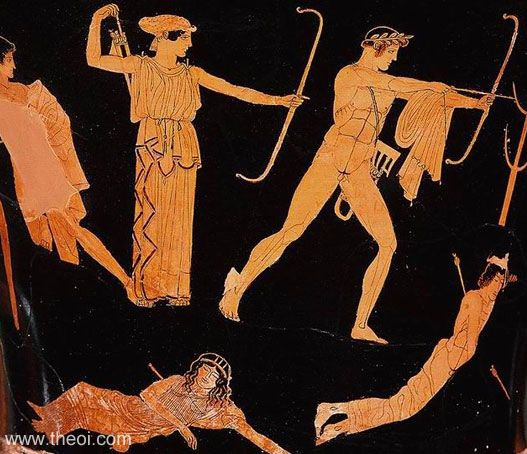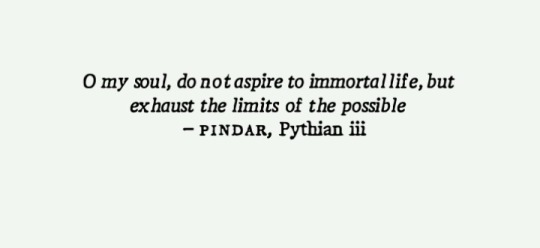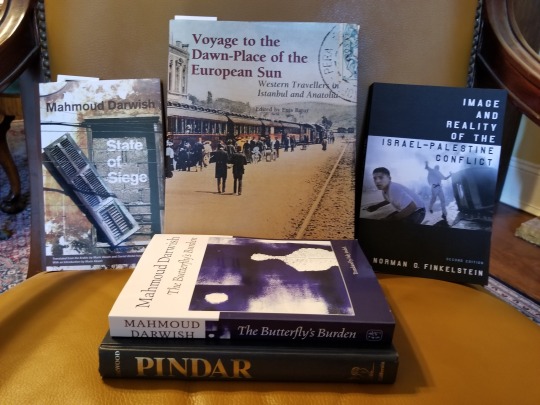#- Pindar
Text
"You [Apollo] who know the appointed end of all things, and all the paths that lead to them? And how many leaves the earth puts forth in spring, and how many grains of sand in the sea and in rivers are dashed by the waves and the gusting winds; and that which will be, and from where it will come, all this you clearly see."
- Pindar, Pythian Ode 9
151 notes
·
View notes
Text

Fragments of perfection | Elysian Fields
#art#collage#core#emo#goth#drain gang#weirdcore#webcore#wound#ethel cain#utopia#eutopia#elysia#pindar#fragments#odin#poetry#prose
286 notes
·
View notes
Text
For neither the blaze-colored fox nor mighty-roaring lions change their inborn character.
τὸ γὰρ \ ἐμφυὲς οὔτ᾽ αἴθων ἀλώπηξ \
οὔτ᾽ ἐρίβρομοι λέοντες διαλλάξαντο ἦθος.
-Pindar, Olympian Ode 11.19-21
#quote#quotes#classics#tagamemnon#Greek#Greek language#Ancient Greek#Ancient Greek language#translation#Greek translation#Ancient Greek translation#poetry#lyric poetry#Greek poetry#Ancient Greek poetry#Pindar#victory ode#Ancient Greece#Classical Greece
66 notes
·
View notes
Text
The myth of Apollo (2)
This is a loose translation of Alain Moreau's article "The Antique Apollo: Shadow and Light".

II/ The ambiguous god
The mystery that shrouds Apollo’s origins, this enigma that disconcerts the scholars, had the advantage to allow the artists a freedom of imagination: since the shape of the primitive character of the god is drowned and blurred, he can be depicted as either a god of light, or a god of shadow and death; However, even within the most clear-cut portraits, his complexity remains. Apollo is never a god entirely just and good ; but he is never fully aligned with malevolent powers.
According to the beginning of the Iliad, Homer chose to depict the dreaded aspect of the go. Apollo, angered against Agamemnon’s army, hits them with a terrible disaster, (nousos, loimos), the plague: “A terrible sound came out of the silver bow. He first attacked the horses, like fast dogs. Then, it is men that are hit by his sharp arrow, and the funeral pyres burn hundreds ceaselessly.” Fervent enemy of the Greeks, it is Apollo that throws against the Achaean wall all the rivers of the Mount Ida ; it is also him that hits Patroclus in the back and offers him unarmed to the spear of Hector. And yet, this terrible god is also the one that brings a painless death, and then the cruel arrows become the “soft arrows”. He is hostile to the Achaeans, but he brings a tireless protection to the Trojans. Aeneas, Glaucos, Hector are all helped by him. He constantly assists them, recomforts them, stimulates them, saves them. If his shot brings death, it can also repel evil. Apollo is “the one that preserves” (hekaergos). Throughout the centuries, many epiclesis will attest this trait: alexikakos, apotropaios, epikourios…
In a reverse way, the “Homeric Hymn”, which is all about the glory of this conquering god who is eternally young and beautiful, oes not hide his “boundless pride”, and he is shown easily tricked. Young Apollo does not have the same temperance and moderation that will become the fundamentals of the Delphi wisdom, engraved on his very temple (“Know thyself”, “Never too much”) ; and young Apollo also lacks the omniscience of his father Zeus.
But with Pindar, at the beginning of the Classical age (5th century), he gains omniscience: in the “Pythics” he is described as “knowing the fatal term of all things and all the paths they take”, as “being able to count the leaves the earth grows during spring, and the grains of sand that roll under the waves of the sea or the river, and the flows of the wind” ; and as “you who sees clearly the future and its origin”… As a generous god, he also offers to humanity benevolent gifts, and maintains peace: “It is him that gives to men and to women the remedies that heal cruel diseases ; he gave us the cithara ; the Muse inspires those that please him ; he places in the hearts the love for concord and the horror of civil war. He rules the prophetic sanctuary.” As a son of Zeus, he himself becomes the embodiment of the divine, of the unnamed, of the celebrated “theos”. But Pindar didn’t go as far as to erase the other Apollo, the cruel god of destruction. Apollo takes his revenge over an unfaithful Coronis by sending Artemis, a merciless and blind executioner, to kill her with a brutal death – and so will perish numerous innocents whose sole crime was to live near the culprit.

Aeschylus’ Apollo, contemporary to the one of Pindar, brings a halt to the evolution of the god – and even a regression. In his tragedies, we have a bloodthirsty god that massacres with his arrows all of Niobe’s sons: his wrath is unflinching. Laios disobeyed the oracle: at the seventh door, the god will cause the fratricide of his grandsons Eteocle and Polynice (The Seven Against Thebes). Cassandra did not keep her promise: she will be mocked, captured and murdered. But the god, just like the perjury girl, does not hold his promises: after predicting to Thetis that all the gods will protect her bloodline with all of their love, he kills her son Achilles (The Judgement of Weapons). He is a god that scares people: “Phoibos” is close to “phobos”, fear and scare (The Persians). “Apollon” is close to “apollôn”, “he who destroys” (Agamemnon). The justice Apollo offers is an archaic justice, a vendetta logic: kill the one that killed. When he fights the Erynies within the play “The Eumenids”, he is not above them in any way: they have the same violence, the same bad faith, the same contradictions. And yet… this god is invoked by the messenger of Argos as the savior and the healer (Agamemnon). This imperfect god is the ambassador of Zeus, as it is highlighted many times during “The Eumenids”. This conquering god settles with pacifism on the ancient throne of Delphi: within “The Eumenids”, no murder of any dragon is mentioned. The god of darkness keeps some traits from the god of light.
The regression of Apollo within Aeschylus’ plays is explained by the turmoil of a world that was building: the Greek city was being born among a set of social and political tensions that impacted the way the thinkers saw the cosmos. Euripides’ own regression of Apollo can be explained by a world that is falling apart. The cities are fighting with each other, beliefs are weakening, the gods are falling from their pedestal and are lowered to the same level as mankind. It is the Dioscuri that absolve Orestes of the death of Clytemnestra. And the culprit of the crime is designated as Apollo, which gave “an unwise order” (Electra). A god full of grudges, he never forgives any offense. It is within his own sanctuary, in a treacherous way, by the arms of a thousand men, that he takes his revenge upon Pyrrhus, right as the latter was coming to make amends: “Here is how the Lord that gives oracles, the arbitrator of the law for all humankind, treats the son of Achilles as he was offering reparation! Just like a wicked man, he remembered old feuds. How could he then be wise?” (Andromache). Another proof of his lack of wisdom: he rapes Creusa. “Ah! Do not act in such a way ; if you have the power, practice the virtue! Because anyone who is wicked is punished by the gods. Then, how can we stand that yourselves, that make laws for the humans, be recognized of violating those laws? (Ion).
And yet, the Apollo of Euripides can also be as shining as the god of Pindar and of the Homeric Hymn: “How beautiful are the children of Leto, that she of Delos birthed in the fecund vales of the Isle – the golden-haired god, knowledgeable lyre-player, and the goddess proud in her talent at shooting with a bow!” (Iphigenia in Taurid). The bloodthirsty god can preach for peace: “Go you way, and may the most beautiful goddess, Peace, be in your home with honor.” (Orestes). And, while the poet is very critical of the god’s actions during “Ion”, he still sings the luminous and cosmic beauty of Delphi which, according to him, would have never been as great as it is if it wasn’t for the grace of its god: “Here is the brilliant four-horse chariot: Helios, already, sheds light upon the earth. And the stars flee the ether that is enflamed among the sacred night. The untouched peaks of the Parnassus, drowned in light, welcome for mankind the disc of the day.”
The ambiguity of the god, tied to his origins, is maintained as much within the works of those that criticized him, as in the texts of those that admired and respected him.

32 notes
·
View notes
Text
Of the fairest glories that mortals may attain, to him is given to sail to the furthest bound. Yet neither by ship nor on foot could you find the marvelous way to the assembly of the Hyperboreans. Yet was it with these that Perseus the warrior chief once feasted, entering their homes, and chanced upon their sacrifices unto the god, those famous offerings of hecatombs of asses; for in their banquets and rich praise Apollon greatly delights, and laughs to see the rampant lewdness of those brutish beasts. Nor is the Muse a stranger in their life, but on all sides the feet of maidens dancing, the full tones of the lyre and pealing flutes are all astir; with leaves of gleaming laurel bound upon their hair, they throng with happy hearts to join the revel. Illness and wasting old age visit not this hallowed race, but far from toil and battle they dwell secure from Nemesis' remorseless vengeance…
— Pindar, Pythian Ode 10, 26-45
15 notes
·
View notes
Text
I feel like Sappho is probably going to come out on top here but I'm curious what everyone's Poetry Hot Takes are
#poetry#lyric poetry#classics#tagamemnon#alcman#sappho#alcaeus#anacreon#stesichorus#ibycus#simonides#baccylides#pindar#greek poetry#poll
127 notes
·
View notes
Text

Thinking about this part in Pindar’s Pythian Ode that states that Danaë was enslaved by Polydectes, now I don’t know if it’s the correct terminology, if she was his sex slave or concubine, but if she was a slave would that make Perseus a slave too? Idk how slavery worked back then but if that’s the case that just pokes more holes into the ironically victim blaming idea (which is pushed by SOME Medusa fans) that Perseus was stupid/evil for obeying Polydectes. Bc even in the most common version, Perseus was tricked and had no other option, but here he’s a slave and it’s even more undeniable that he had no choice.
#greek mythology#ancient greek mythology#greek pantheon#Perseus#Danae#perseus and medusa#danaë#Medusa#pindar
12 notes
·
View notes
Text

σύμβολον δ’ οὔ πώ τις ἐπιχθονίων
πιστὸν ἀμφὶ πράξιος ἐσσομένας εὗρεν θεόθεν,
τῶν δὲ μελλόντων τετύφλωνται φραδαί
Pindar
No mortal has ever discovered a faithful sign of things to come from the gods: we are blind to the future.
Photo: Statues in the Tuileries gardens in Paris being protected from German air raids, 1940.
#pindar#greek#classical#quote#statues#foresight#signs#paris#second world war#arts#sculptures#war#tuileries gardens#future#culture
56 notes
·
View notes
Text
"It is Apollo who dispenses remedies to men and women for grievous diseases, and who bestowed on us the cithara, and gives the Muses' inspiration to whomever he will, bringing peaceful concord into the mind, and who possesses the oracular shrine."
- Pindar, Pythian Ode 5
#- Pindar#Pythian Ode 5#apollo#apollon#greek mythology#greek gods#pindar#pythian odes#quotes#reading#relatable quotes#romance quotes#art#shakespeare#quoteoftheday#spilled thoughts#inspiring quotes#relationship quotes
18 notes
·
View notes
Text

#the myth of sisyphus#pindar#albert camus#writing#literature#soul#quotes#english#poetry#poems and poetry
11 notes
·
View notes
Text
"It is Apollo who dispenses remedies to men and women for grievous diseases, and who bestowed on us the cithara, and gives the Muses' inspiration to whomever he will, bringing peaceful concord into the mind, and who possesses the oracular shrine."
- Pindar, Pythian Ode 5
155 notes
·
View notes
Text

My favorite bookshop contacted me about two books of poetry by Mahmoud Darwish which I was interested in. So, today it was off to the French Quarter. Obviously I came home with more than just the two Darwish books. I hope that I live long enough to read these and others in my library.
#books#bookstores#bookworm#poetry#mahmoud darwish#pindar#norman finkelstein#istanbul#travellers#anatolia#palestine#israel
7 notes
·
View notes
Text
I think humanity is so sweet when I read the odes of the ancient greek athletes.
Pindar had said that his songs are heard all over Greece, that they do not stand motionless on pedestals like statues. Someone else had said that kleos, glory, was truly to be remembered for your achievements.
Reading about the odes of the ancient greek athletes... I sure hope they're out there, knowing that I remember them. I may not know their melodies, or even understand their original words, but I imagine them, celebrating their wins with their families. Smiling at their loved ones. Just, living. Like us. I want to remember them.
2 notes
·
View notes
Quote
Creatures of a day, what is any one? What is he not? Man is but a dream of a shadow. Yet when there comes as a gift of heaven a gleam of sunshine, there rest upon men a radiant light and, aye, a gentle life.
Pindar, Odes for Victorious Athletes
3 notes
·
View notes
Text
"And yet once there went from Thebes, Cadmus' city, a hero short in stature but unflinching in spirit. This hero went to the house of Antaeus in grain-bearing Libya, to keep him from roofing Poseidon's temple with the skulls of strangers, Alcmena's son. He went to Olympus, after he had explored all lands and the high-cliffed hollow of the gray sea, and had tamed the straits for sailors." - Pindar Isthmean 4
Fuck off Pindar, I'm not willing to accept tiny Herakles!
3 notes
·
View notes
Text

"Let us look one another in the face. We are Hyperboreans — we know well enough how much out of the way we live. ‘Neither by land nor sea shalt thou find the road to the Hyperboreans’: Pindar already knew that of us".
- Friedrich Nietzsche, The Antichrist.
#Friedrich Nietzsche#the antichrist#thus spoke zarathustra#beyond good and evil#the gay science#eternal return#carl Jung#julius evola#europe#european philosophy#philoshophy#ortega y gasset#traditionalism#european thought#nouvelle droite#alain de Benoist#hyperborea#hyperboreans#pindar#north wind
31 notes
·
View notes